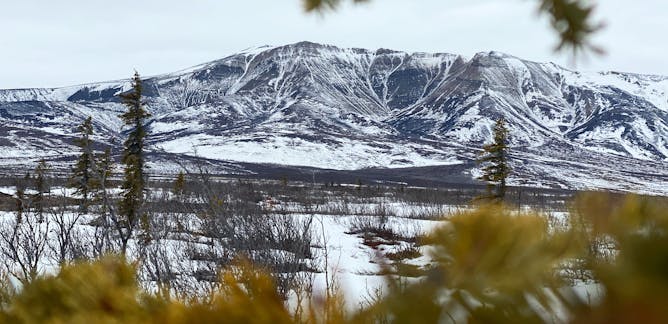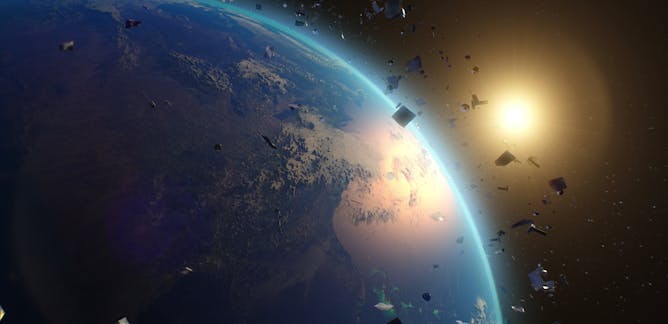|
From COVID-19 to climate change, cyberterrorism to conspiracy theories, there’s been a lot on our minds and in the news in 2021. This was the year we fought hard to keep the faith and maintain our trust in the governments, institutions and processes that were supposed to regulate and protect us. But as we approach the third year of this seemingly interminable pandemic, our faith in everything has been pretty much shaken to its core.
It was a big year for science. If 2020 highlighted the importance of scientific research and collaboration, this year drove home the significance of science in making informed decisions — especially during the ongoing crisis of trust.
Globally, governments are tightening restrictions in the face of yet another variant of concern, and the possibility of another lockdown looms as we head into 2022. It seems apt to point out that one of our most popular stories of the year questioned the ethics of government-ordered lockdowns, stating that governments should work hard to strike the balance between “promoting the public good and protecting public health.”
Speaking of pandemic fatigue, it was heartening to see that COVID-19 hasn’t managed to dull our readers’ thirst for science stories. Some of our most popular articles could serve as the premise for a fascinating science fiction movie — from the unexplained appearances of strange monoliths to an unrecognizable future Earth based on climate change projections for the year 2500 to the ever-growing capabilities of contact lenses. In fact, the recent discovery of a planet that orbits three stars echoes the premise of the Chinese science fiction novel The Three-Body Problem.
And as always, scientific research has shed more light on how we understand ourselves and the world around us (and beyond). New findings have shown us that we process information about our environments differently based on whether we’re standing up or lying down, the evolutionary history of animals may be hundreds of millions of years longer than originally believed and a volcanic eruption that was assumed to be an extinction-level event 140 million years ago likely wasn’t.
Several alarms were raised this year too: Russia tested its weapon capabilities on one of its own satellites, with potentially alarming global consequences. And the implications of internet giants like Google and Microsoft controlling plain language coding were pointed out — gatekeeping by corporations makes the internet less democratic, reinforcing social inequities.
Scientific research and discoveries can help address the crisis of trust in our public institutions. We’re looking forward to sharing the stories of this work going into 2022, and beyond.
Until next year, all the best,
|
Year in Review: Science + Technology
|

James Sikkema, McMaster University
Different levels of governments have ordered physical distancing measures of varying degrees, but are they truly lawful?
| |

Christopher Lyon, McGill University; Alex Dunhill, University of Leeds; Andrew P. Beckerman, University of Sheffield; Ariane Burke, Université de Montréal; Bethany Allen, University of Leeds; Chris Smith, University of Leeds; Daniel J. Hill, University of Leeds; Erin Saupe, University of Oxford; James McKay, University of Leeds; Julien Riel-Salvatore, Université de Montréal; Lindsay C. Stringer, University of York; Rob Marchant, University of York; Tracy Aze, University of Leeds
Climate change predictions often use the year 2100 as an end-point. But it’s important to consider what will happen beyond that, at least up to the year 2500.
|

Andrew Roddick, McMaster University; Anna Guengerich, Eckerd College
Polished metal monoliths recently appeared in remote locations around the world. In some ways, they’re not unusual — standing stones have been important in many historical cultures of the world.
| |

Elizabeth C. Turner, Laurentian University
A recent discovery of a sponge fossil may be the oldest known animal fossil, extending the evolutionary timeline by hundreds of millions of years.
|

Samantha Lawler, University of Regina
Publicly available data and collaborations between scientists have led to the discovery of a planet in a triple-star system.
| |

Kuan-Wei Chen, McGill University; Bayar Goswami, McGill University; Ram S. Jakhu, McGill University
Russia’s testing of an anti-satellite weapon risked the life of astronauts on the International Space Station and could have astronomical impacts on Earth.
|

Bishakh Rout, McGill University
Contact lens technology is reaching the point where science fiction meets reality. From interfaces to pressure monitors and drug release features, the contact lens industry is about to be disrupted.
| |

David I. Shore, McMaster University
Learning that our brains process information differently when we’re standing up or lying down has implications for how we study and assess brain function.
|

Joshua Davies, Université du Québec à Montréal (UQAM); Brenda Chung Rocha, Universidade de São Paulo; Nicolas Greber, Université de Berne
Huge volcanic eruptions were once believed to be the cause of mass extinctions on Earth. However, new research has found that super eruptions did not necessarily result in mass extinctions.
| |

David Murakami Wood, Queen's University, Ontario; David Eliot, Queen's University, Ontario
Natural language coding means that people won’t need to learn specialized coding languages to write programs or design websites. But large corporations will control the means of translation.
|
|
|